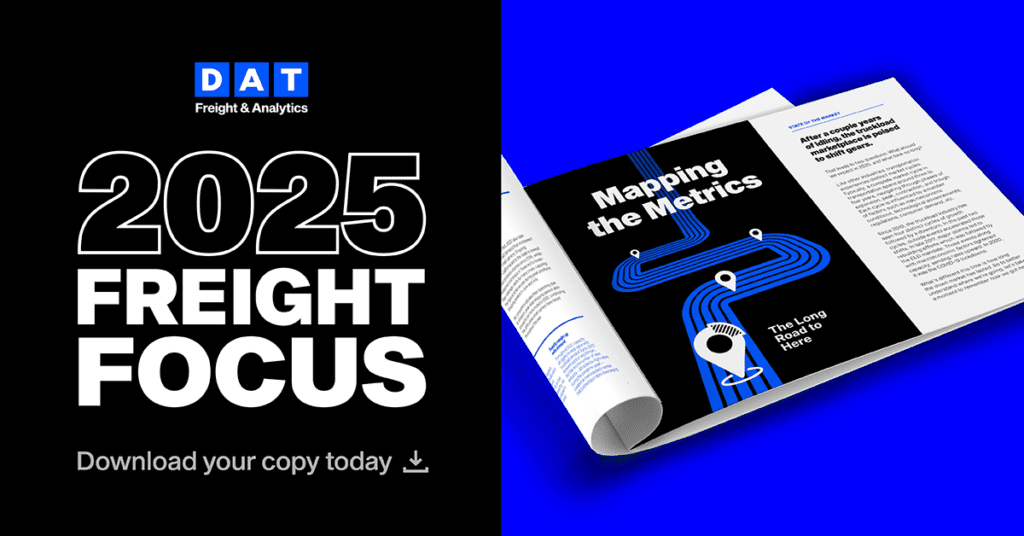The collapse of a section of a bridge section on I-85 just north of Atlanta was shocking for two reasons: No injuries were reported, and its impact on spot market truckload freight has been and probably will be muted.
Here’s why:

The “Downtown Connector” (I-75 and I-85) in Atlanta. Photo by By Atlantacitizen at Wikipedia
1) I-85 runs through Atlanta but isn’t a major truck lane, since most trucks have to take I-285 to go around Atlanta, not through it. Traffic jams will slow freight entering and leaving the Atlanta market for the next few months, but the impact on truckload freight is likely to be limited to freight going to and from Charlotte and the Carolinas and other points north. That accounts for about 10% of Atlanta’s truck traffic.
2) Warehouses on the south side of Atlanta will be impacted the least or not at all, since their focus is on shipping to Florida.
3) Likewise, shipments west to Birmingham and northwest to Nashville won’t be much impacted.
4) Local Atlanta truckloads (within zip code 303) have risen from a 30-day average of $282 to a 7-day average of $310. The one year average for local truckload moves is $255.
5) Not surprisingly but coincidentally, L.A. replaced Atlanta as the number 1 key market area for outbound van loads, but this has more to do with Oxnard and the Santa Ana valley fruits (think strawberries) starting to move, as well as other leafy greens from El Centro and Imperial Valley that move without needing refrigerated units.
Get most up-to-date and accurate spot market rates with DAT RateView

